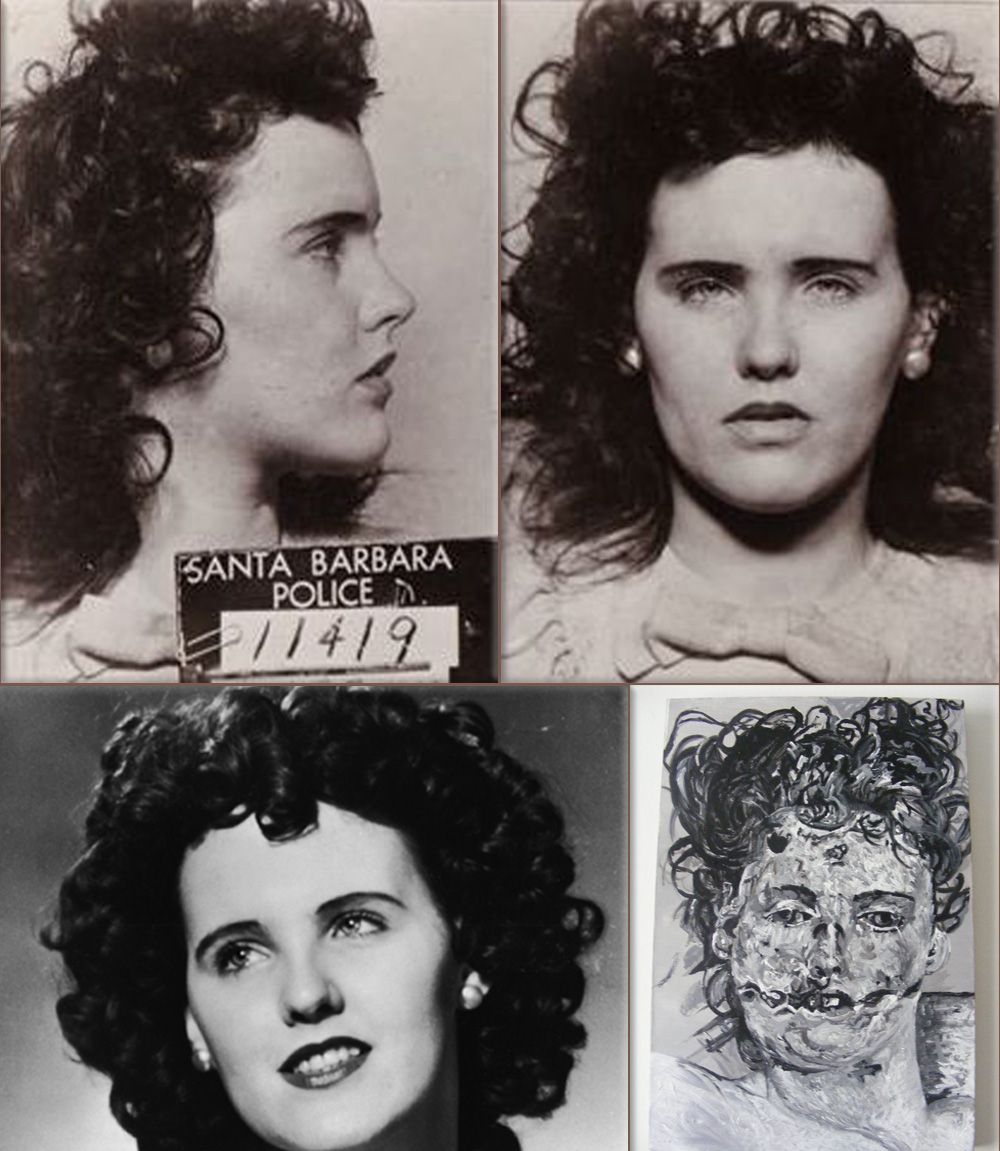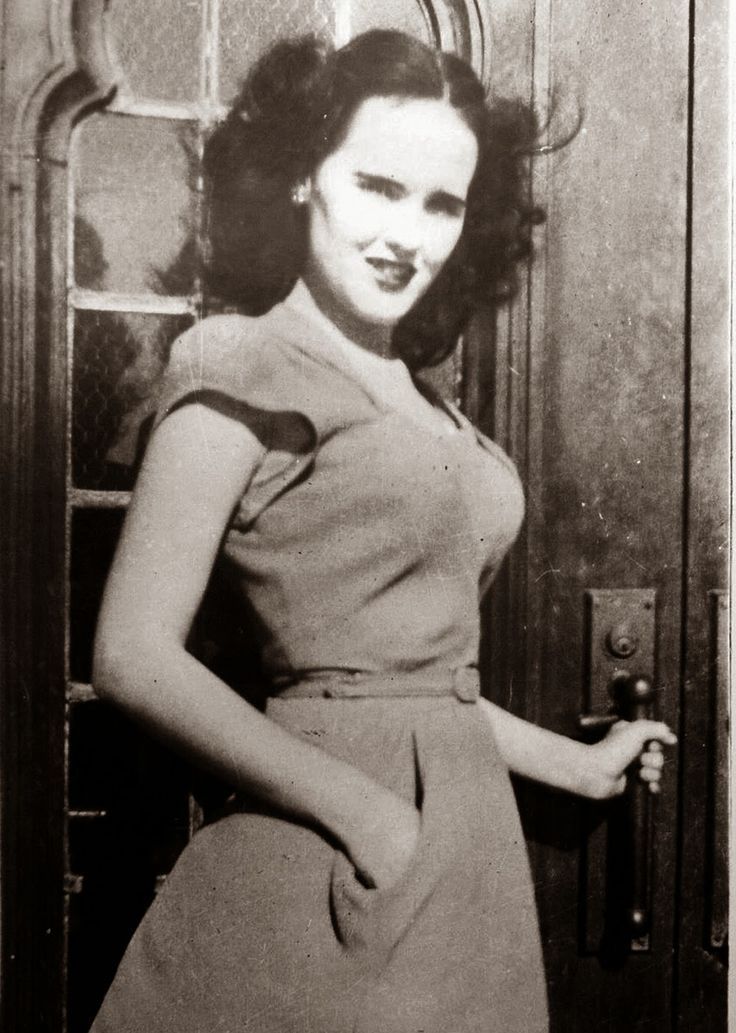The Mysterious Tale Of Elizabeth Short: Unveiling The Dark Angel's Legacy
Apr 07 2025
When you hear the name Elizabeth Short, your mind might immediately drift to the infamous Black Dahlia case that sent shockwaves through 1940s Los Angeles. This tragic story of a young woman whose life was cut short continues to haunt the annals of true crime history. The case remains one of the most notorious unsolved murders in American history, captivating the public's imagination for decades.
Picture this: A sunny January morning in 1947, when the lifeless body of a beautiful young woman was discovered in a vacant lot in Leimert Park. The grisly scene would soon become etched in the collective memory of a nation. But who was Elizabeth Short? Beyond the sensational headlines and morbid curiosity, there's a human story waiting to be told – one of dreams, aspirations, and the cruel hand of fate.
As we delve into the life and times of this enigmatic figure, we'll uncover the layers of mystery surrounding her short but impactful existence. From her humble beginnings to the tragic end that catapulted her into infamy, Elizabeth Short's story is a poignant reminder of the fragility of life and the enduring quest for justice. So, grab a seat and let's dive into the world of the Black Dahlia.
Biography: The Life and Times of Elizabeth Short
Before we dive into the sensational aspects of her case, let's take a moment to understand the person behind the headlines. Elizabeth Short was born on July 29, 1924, in Boston, Massachusetts. Her early life was marked by a series of moves across the country, as her family sought stability during the tumultuous years of the Great Depression.
Here's a quick look at some key details about Elizabeth:
| Full Name | Elizabeth Short |
|---|---|
| Birthdate | July 29, 1924 |
| Birthplace | Boston, Massachusetts |
| Occupation | Aspiring actress |
| Known For | The Black Dahlia murder case |
Early Years: Growing Up in a Changing World
Elizabeth's childhood was anything but ordinary. Her father, Cleo Short, abandoned the family when she was just a toddler, leaving her mother, Phoebe Mae Welch, to raise five daughters on her own. This early experience of instability would shape Elizabeth's worldview and drive her ambition to make a name for herself in the entertainment industry.
Throughout her teenage years, Elizabeth moved frequently with her family, settling in various parts of the United States. These experiences exposed her to different cultures and lifestyles, broadening her horizons and fueling her desire for adventure.
Aspirations: Chasing Dreams in Hollywood
Like many young women of her era, Elizabeth was drawn to the glitz and glamour of Hollywood. She arrived in Los Angeles in 1943, hoping to make it big as an actress. While she did manage to secure a few bit parts in films, her acting career never truly took off. Instead, she spent her days working odd jobs and socializing with the city's vibrant nightlife scene.
Networking in Tinseltown
Elizabeth's charm and beauty opened doors in the competitive world of entertainment. She reportedly crossed paths with several prominent figures in the industry, including actor Bob Hope and director Otto Preminger. However, these connections never translated into meaningful career opportunities.
The Tragic End: Unraveling the Mystery
No discussion of Elizabeth Short would be complete without addressing the circumstances surrounding her untimely death. On January 15, 1947, her mutilated body was discovered in a vacant lot, shocking the nation and sparking a media frenzy. The brutal nature of her murder and the subsequent failure to identify her killer have kept the case alive in public consciousness for over seven decades.
Key Details of the Case
- Body found in a vacant lot in Leimert Park
- Victim's face and body severely mutilated
- Case remains unsolved despite extensive investigations
- Numerous suspects investigated, none convicted
Public Reaction: A Nation Gripped by Horror
The Black Dahlia case captured the imagination of the American public like few other crimes of its time. Newspapers across the country ran front-page stories, fueling a wave of morbid curiosity that persists to this day. The nickname "Black Dahlia" was reportedly coined by reporters, inspired by a popular film noir movie of the era.
As word of the murder spread, the public demanded answers. Law enforcement agencies faced intense scrutiny, with critics accusing them of bungling the investigation. Despite numerous leads and suspects, the case remains one of the most infamous unsolved murders in American history.
Legacy: Remembering Elizabeth Short
While Elizabeth Short's life was tragically cut short, her legacy endures through the enduring fascination with her case. Countless books, films, and documentaries have been produced about the Black Dahlia, each offering its own interpretation of events. But beyond the sensationalism, it's important to remember the real person behind the headlines – a young woman with dreams and aspirations like any of us.
Impact on True Crime Genre
The Black Dahlia case is often credited with helping to popularize the true crime genre. Its grisly details and unsolved nature have inspired generations of writers, filmmakers, and investigators. The case remains a touchstone for discussions about justice, law enforcement, and the media's role in shaping public perception.
Psychological Insights: Understanding the Mind of a Killer
While we may never know the identity of Elizabeth's killer, psychologists and criminologists have offered various theories about the type of person capable of committing such a heinous act. The brutal nature of the murder suggests a highly calculated and methodical individual, possibly with a history of violent behavior.
Experts have pointed to several potential motives, including sexual deviance, anger, or even a desire for infamy. However, without concrete evidence, these theories remain speculative at best.
Cultural Significance: The Black Dahlia in Popular Media
The Black Dahlia case has been the subject of countless adaptations across various media. Some notable examples include:
- The 2006 film "The Black Dahlia," starring Scarlett Johansson and Josh Hartnett
- Brian McNulty's 1997 book "The Black Dahlia Avenger: A True Story of Murder and Corruption in Los Angeles"
- Various episodes of popular true crime podcasts and television shows
These adaptations have helped keep Elizabeth's story alive in the public consciousness, ensuring that her memory lives on.
Modern-Day Relevance: Lessons from the Past
In today's world, where true crime has become a cultural phenomenon, the Black Dahlia case serves as a powerful reminder of the importance of justice and accountability. The failure to solve Elizabeth's murder highlights the need for continued advancements in forensic science and investigative techniques.
Moreover, the case raises important questions about how society treats victims of violence, particularly women. As we continue to grapple with issues of gender-based violence, Elizabeth Short's story remains a powerful call to action for change.
Conclusion: Remembering Elizabeth Short
As we've explored the life and times of Elizabeth Short, it's clear that her story is much more than just a sensationalized true crime tale. Behind the headlines and speculation lies a real person with hopes, dreams, and aspirations. While we may never know the full truth about her tragic end, her legacy continues to inspire conversations about justice, accountability, and the human condition.
So, the next time you hear the name Black Dahlia, take a moment to remember the real Elizabeth Short – a young woman whose life was tragically cut short but whose memory lives on through the countless ways her story has touched our lives. Share this article, leave a comment, and let's keep the conversation going.
Table of Contents
- Biography: The Life and Times of Elizabeth Short
- Early Years: Growing Up in a Changing World
- Aspirations: Chasing Dreams in Hollywood
- Networking in Tinseltown
- The Tragic End: Unraveling the Mystery
- Key Details of the Case
- Public Reaction: A Nation Gripped by Horror
- Legacy: Remembering Elizabeth Short
- Impact on True Crime Genre
- Psychological Insights: Understanding the Mind of a Killer
- Cultural Significance: The Black Dahlia in Popular Media
- Modern-Day Relevance: Lessons from the Past


